Regulierung internationaler Finanzmärkte und Banken
Diese Forschungsgruppe analysiert Ursachen und Konsequenzen von internationalen Aktivitäten von Banken sowie den regulatorischen Rahmen, innerhalb dessen globale Banken operieren.
International aktive Banken können eine effiziente internationale Kapitalallokation vereinfachen und zur internationalen Risikoteilung beitragen. Allerdings können sie auch Instabilitäten generieren und zu einer Übertragung von Schocks über nationale Grenzen hinaus beitragen. Dies ist einer der Gründe für die aktuelle Re-Regulierung des internationalen Bankensystems.
Die Forschungsgruppe trägt auf drei verschiedenen Wegen zur Literatur bei. Erstens analysiert die Gruppe empirisch, warum internationale Banken global aktiv sind und wie Schocks im Finanzsystem übertragen werden. Zweitens untersucht die Gruppe das Entstehen von systemischen Risiken und Ungleichgewichten im integrierten Bankenmarkt und die sich daraus ergebenden Konsequenzen für die Realwirtschaft. Drittens werden die Auswirkungen von Änderungen bezüglich der Bankenaufsicht und Bankenregulierung analysiert, mit einem besonderen Fokus auf dem europäischen Integrationsprozess
IWH-Datenprojekt: International Banking Library
Forschungscluster
Wirtschaftliche Dynamik und StabilitätIhr Kontakt

Mitglied - Abteilung Finanzmärkte
PROJEKTE
07.2017 ‐ 12.2022
Die politische Ökonomie der europäischen Bankenunion
Europäischer Sozialfonds (ESF)
Ursachen für nationale Unterschiede in der Umsetzung der Bankenunion und daraus resultierende Auswirkungen auf die Finanzstabilität.
01.2015 ‐ 12.2017
Dynamic Interactions between Banks and the Real Economy
Deutsche Forschungsgemeinschaft (DFG)
Referierte Publikationen
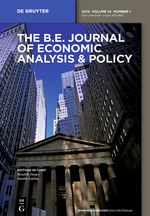
Elevated Uncertainty during the Financial Crisis: Do Effects on Subjective Well-being Differ across European Countries?
in: B.E. Journal of Economic Analysis and Policy, Nr. 2, 2019
Abstract
This paper focuses on the effect of uncertainty as reflected by financial market variables on subjective well-being. The analysis is based on Eurobarometer surveys, covering 18 countries over the period 2000–2013. Individuals report lower levels of life satisfaction in times of higher uncertainty approximated by stock market volatility. This effect is heterogeneous across respondents: the probability of being unsatisfied is higher for respondents who are older, unemployed, less educated, and live in one of the GIIPS countries of the Euro area. Furthermore, higher uncertainty in combination with a financial crisis increases the probability of reporting low values of life satisfaction.
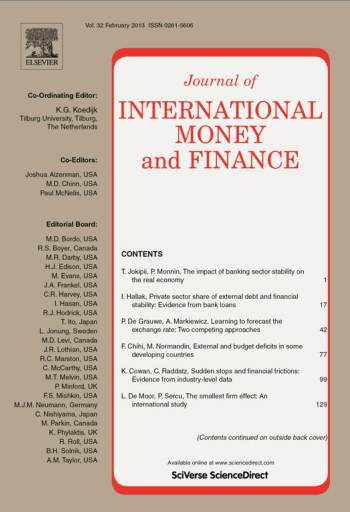
Drivers of Systemic Risk: Do National and European Perspectives Differ?
in: Journal of International Money and Finance, March 2019
Abstract
With the establishment of the Banking Union, the European Central Bank has been granted the power to impose stricter regulations than the national regulator if systemic risks are not adequately addressed at the national level. We ask whether there is a cross-border externality in the sense that a bank’s systemic risk differs when applying a national versus a European perspective. On average, banks’ contribution to systemic risk is similar at the two regional levels, and so is the ranking of banks. Generally, larger banks and banks with a lower share of loans are more systemically important. The effects of these variables are qualitatively but not quantitatively similar at the national versus the European level.

Political Influence and Financial Flexibility: Evidence from China
in: Journal of Banking and Finance, February 2019
Abstract
This paper investigates how political influence affects firms’ financial flexibility and speed of adjustment toward target leverage ratios. We find that at the macro level, firms in environments with high political advantages, proxied by provincial affiliations with heads of state as well as political status and party rank of provincial leaders, adjust faster. At the micro level, firms that are state-owned, have CPC members as executives, or bear low exposure to changes in political uncertainty adjust faster. When interacted, the micro-level political factors have more significant impact.
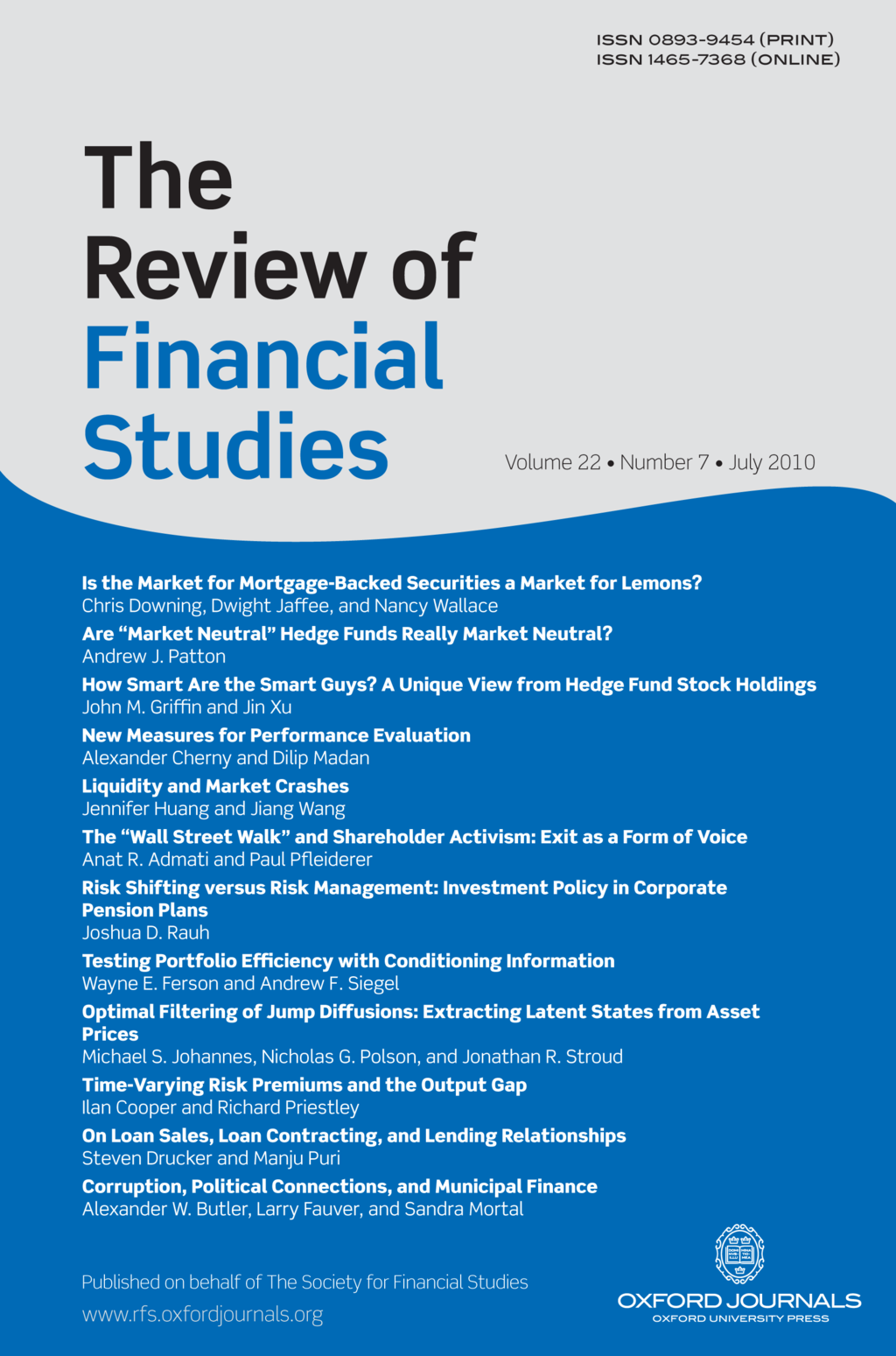
Banks Response to Higher Capital Requirements: Evidence from a Quasi-natural Experiment
in: Review of Financial Studies, Nr. 1, 2019
Abstract
We study the impact of higher capital requirements on banks’ balance sheets and their transmission to the real economy. The 2011 EBA capital exercise is an almost ideal quasi-natural experiment to identify this impact with a difference-in-differences matching estimator. We find that treated banks increase their capital ratios by reducing their risk-weighted assets, not by raising their levels of equity, consistent with debt overhang. Banks reduce lending to corporate and retail customers, resulting in lower asset, investment, and sales growth for firms obtaining a larger share of their bank credit from the treated banks.

Big Fish in Small Banking Ponds? Cost Advantages and Foreign Affiliate Presences
in: Journal of International Money and Finance, 2018
Abstract
We distinguish cost advantage at home from cost advantage vis-à-vis incumbent banks in destination markets to explain the probability of foreign bank affiliate lending. We combine detailed affiliate lending data of all German banks with public bank micro data from 59 destination markets. The likelihood to operate foreign affiliates depends positively on both types of cost advantage. Only cost advantage at home is economically significant. Generally, risk, return, and unobservable bank traits explain a larger share of the variation in foreign affiliate operations. Less profitable, more risky, and larger banks are more likely to operate affiliates abroad.
Arbeitspapiere
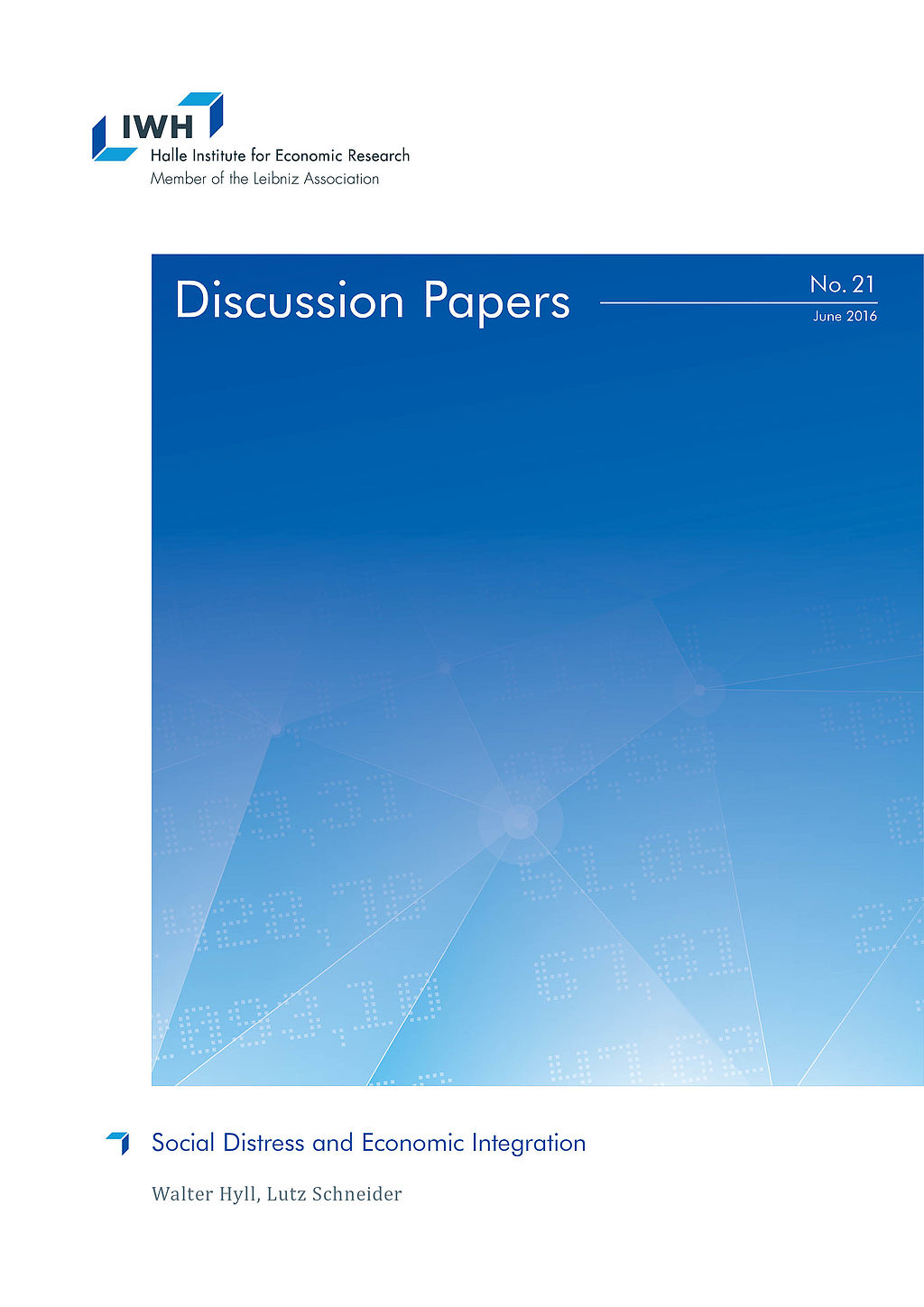
Friend or Foe? Crowdfunding Versus Credit when Banks are Stressed
in: IWH Discussion Papers, Nr. 8, 2015
Abstract
Does bank instability push borrowers to use crowdfunding as a source of external finance? We identify stressed banks and link them to a unique, manually constructed sample of 157 new ventures seeking equity crowdfunding. The sample comprises projects from all German equity crowdfunding platforms since 2011, which we compare with 200 ventures that do not use crowdfunding. Crowdfunding is significantly more likely for new ventures that interact with stressed banks. Innovative funding is thus particularly relevant when conventional financiers are facing crises. But crowdfunded ventures are generally also more opaque and risky than new ventures that do not use crowdfunding.
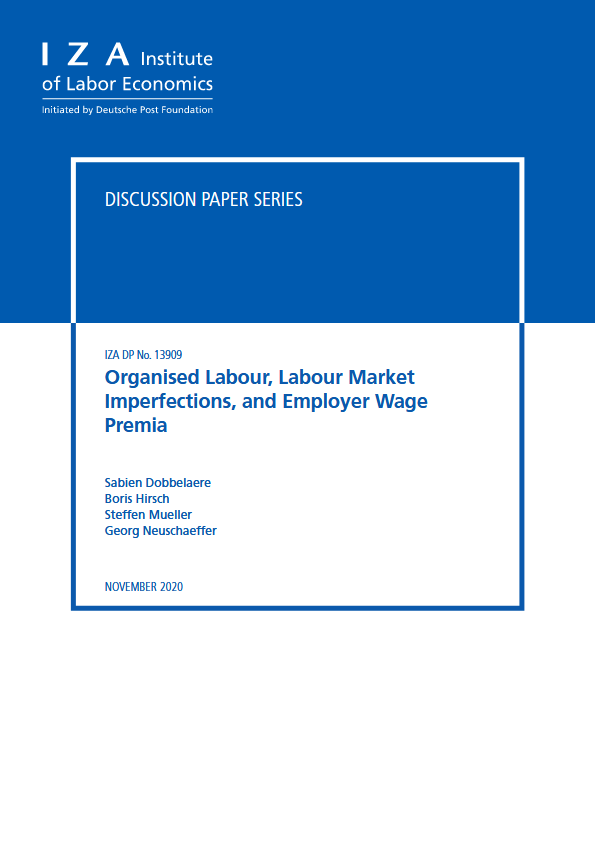
Explaining Regional Disparities in Housing Prices across German Districts
in: IZA Institute of Labor Economics, March 2022
Abstract
Over the last decade, German housing prices have increased unprecedentedly. Drawing on quality-adjusted housing price data at the district level, we document large and increasing regional disparities: growth rates were higher in 1) the largest seven cities, 2) districts located in the south, and 3) districts with higher initial price levels. Indications of price bubbles are concentrated in the largest cities and in the purchasing market. Prices seem to be driven by the demand side: increasing population density, higher shares of academically educated employees and increasing purchasing power explain our findings, while supply remained relatively constrained in the short term.














